How To Store Fresh Pasta Without Sticking
Updated Jan 01, 2025, Published Mar 03, 2024
This post may contain affiliate links. Please read our disclosure policy.
I think everyone has made way too much pasta for one sitting at least once in their life. If you have, you know the next problem is storage. Trying to save pasta for later use can be a hassle because it will usually stick together and make one big clump of not-so-appetizing pasta. I’m sharing a few tried-and-true storage methods for storing fresh pasta without sticking together.

Table of Contents
- Homemade Pasta Recipes
- How long does fresh pasta last?
- How to store fresh dry pasta
- How to store fresh (cooked) pasta in the fridge
- How to store fresh pasta in the freezer
- Using pasta nests to store in the freezer
- How NOT to store fresh pasta
- Sauce recipes to try with frozen pasta
- More Italian Kitchen Fun Facts
Homemade Pasta Recipes
If you haven’t tried making fresh homemade pasta yet, I highly encourage you to try it. It’s not nearly as hard or complicated as it seems! To get started, check out my fool-proof guides on pasta making: homemade pappardelle, homemade ravioli, and homemade gnocchi,
You can use the first recipe (for pappardelle pasta) to make homemade pasta dough, then into any of the various pasta shapes you want! It’s great for lasagna noodles, long noodles, or even angel hair pasta if you have the right pasta maker or pasta machine attachment.
Once you’ve mastered the art of making your fresh pasta, you’ll need a way to store it to maintain its flavor and texture.
How long does fresh pasta last?
Storage can be very tricky if you’re making fresh pasta ahead of time. It’s recommended to cook pasta the next day or within 18 hours.
After 18 hours, the pasta can begin to oxidize and start to absorb water. You can tell if your pasta has oxidized because the color changes to a green or gray color. This doesn’t mean the pasta is unsafe to eat but it isn’t nearly as nice to look at.
Fresh, uncooked pasta can last for up to a month in the freezer.
How to store fresh dry pasta
If you’ve made a big pasta batch, how you store it is essential! So, what is the best way to store fresh egg pasta without sticking? The best way to do this is to dry your pasta before storage. You can do this on the counter or use a drying rack if you have one.
To do this, first coat the pasta in a little bit of flour or semolina flour so that any parts that are still moist or wet don’t congeal. Next, you should let the pasta dry out completely. This can take anywhere from 12 to 24 hours. You can check the pasta every few hours to see if it is dry. To test the pasta, take a piece and try to break it around. If it snaps easily, it is finished. If it bends or twists, the pasta needs more time to dry.
After the pasta has had time to dry completely, you can store it in an airtight container in a dry area that doesn’t experience extreme temperature changes. You want to ensure the container is air-tight so that no moisture can get to the pasta and cause mold to grow.
I recommend using a sturdy container rather than a plastic bag so your pasta doesn’t break. After all that hard work, the last thing you want is broken pasta shards. You can store fresh, dried pasta in the pantry for at least a year!
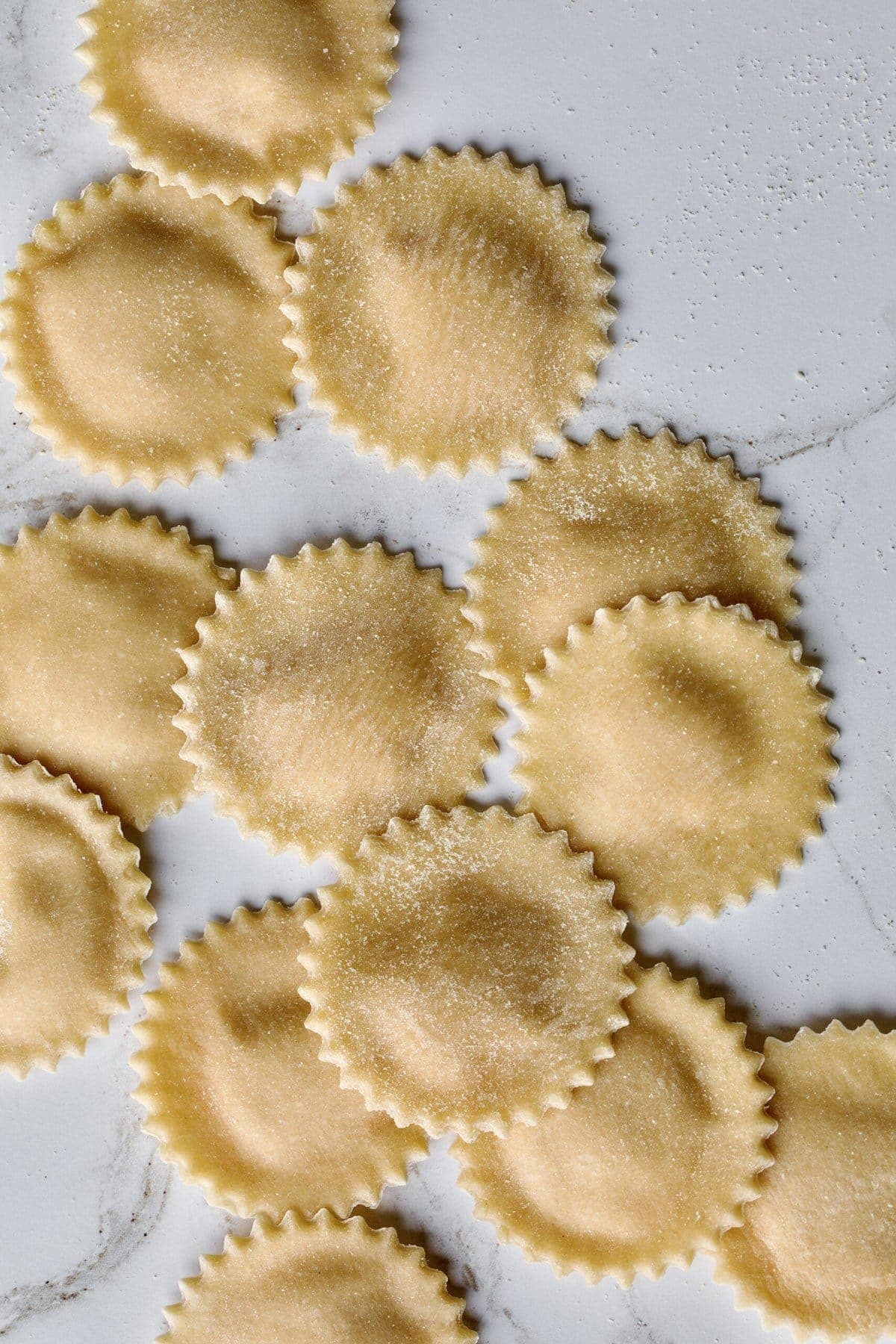
How to store fresh (cooked) pasta in the fridge
If you’ve made fresh pasta and enough to feed an army, you’ll definitely want to save it for later! When storing cooked pasta in the fridge, the biggest issue is clumping or sticking together.
To avoid this, drizzle melted butter, olive oil, or any other neutral-flavored oil over the pasta and stir to coat the noodles. You don’t need to use much, 1-2 tablespoons per pound of pasta should be plenty. Start with only one tablespoon and stir well. Make sure all the pasta is coated before you add more butter or oil.
It’s much easier to coat the pasta with oil when it’s slightly warm. But ensure it is completely cooled to room temperature before storing it in an air-tight container in the fridge for 3 to 5 days.

How to store fresh pasta in the freezer
Having frozen pasta on hand can relieve you when you’ve had a long day and just need a quick and easy dinner idea. Good news! Pasta can last for up to 3 months in the freezer. Foods with a higher water content (like pasta) can quickly freezer burn if left for too long.
If you’re storing fresh pasta dough the storage process is very easy. All you need to do is wrap the pasta dough in plastic wrap then put it in a storage bag, and freeze.
To store your pasta in the freezer, use the same method as the fridge. Coat the pasta with butter, olive oil, or another neutral-flavored oil. This method will work with any pasta shape or size, from shells to spaghetti.
When freezing your pasta, I find that freezer bags work best because you can get as much air out as possible before freezing. It’s also much easier to store than in a bulky container. Ensure that nothing is on top of the bagged pasta so it doesn’t break or tear.
If you freeze your pasta, defrost it in the fridge for a few hours instead of on the counter. If the pasta is already cooked, add it to salted, boiling water and increase the cooking time by about 30 to 60 seconds.
Using pasta nests to store in the freezer
When freezing pasta, I find it easier to form pasta into “nests”. This allows you to remove as many servings as you want from the storage container without cooking it all at once! It’s much easier to get precisely the amount you want to cook because the pasta is pre-portioned with this method,
Before you form the pasta “nest” you need to dry it for about 5 minutes in a single layer. Then, coat with regular flour or semolina. I prefer semolina because it is milled less and still has small grains in it that keep the pasta separated.
To form the “nest” gently grab the pasta by the ends. Wrap it around your middle 3 fingers and slide off onto your work surface. (I prefer a sheet pan or baking sheet) Freeze until solid (about 45 minutes) then remove from the pan and place into your air-tight storage container or freezer-safe plastic bags.

How NOT to store fresh pasta
If you’ve been asking yourself how to store fresh pasta without sticking, you should also ask NOT to store it! Many sources will tell you to rinse your pasta in cold water after cooking. If you plan to add pasta to a sauce, you should NOT rinse it. Washing the pasta removes the starchy coating that helps the sauce adhere.
You should never put pasta directly into the fridge or freezer after cooking! You need to make sure the pasta is cooled off first. If you put it right into the fridge while still warm, this encourages bacteria to grow. If you refrigerate pasta while it’s still hot, you trap even more moisture which causes pasta to stick together.
Lastly, never store your pasta without a closed, air-tight container. Simply putting the pasta in the fridge in the cooking pot or bowl with no lid will dry it out. This also makes your pasta susceptible to contamination with whatever may fall into it.
Sauce recipes to try with frozen pasta
Now that you have all the storage options, you can make as much of your own pasta as your heart desires and have enough to save for future use. I have a few of my favorite pasta recipes to share with you! Come back for a reminder on how to store fresh pasta without sticking when you’re done with these recipes!
Cheese and Broccoli Pasta Bake – Everyone loves the cheesy sauce, perfectly cooked broccoli, and crunchy topping with a hint of lemon.
Lemon Butter Sauce – A silky lemon cream sauce bursting with fresh flavors and rich parmigiano cheese to coat the pasta perfectly.
mediterranean lasagna – Packed with delicious Mediterranean flavors, perfectly roasted vegetables, a blend of four cheeses, and baked until golden brown.
Eggplant and Tomato Pasta Sauce – This light and easy summery eggplant and tomato pasta sauce is one filling meal you will crave!
Pappardelle Pasta with Mushrooms – This vegetarian meal will fill you up and still make you reach for a second helping!
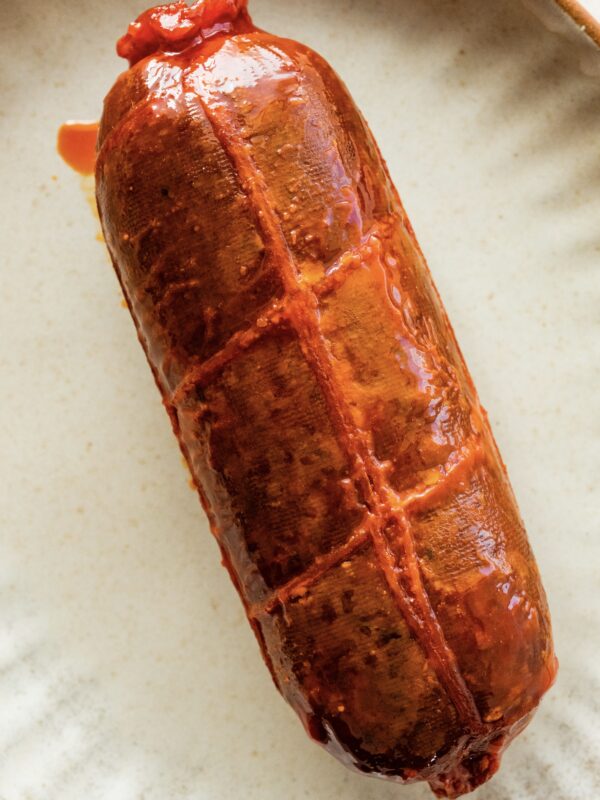
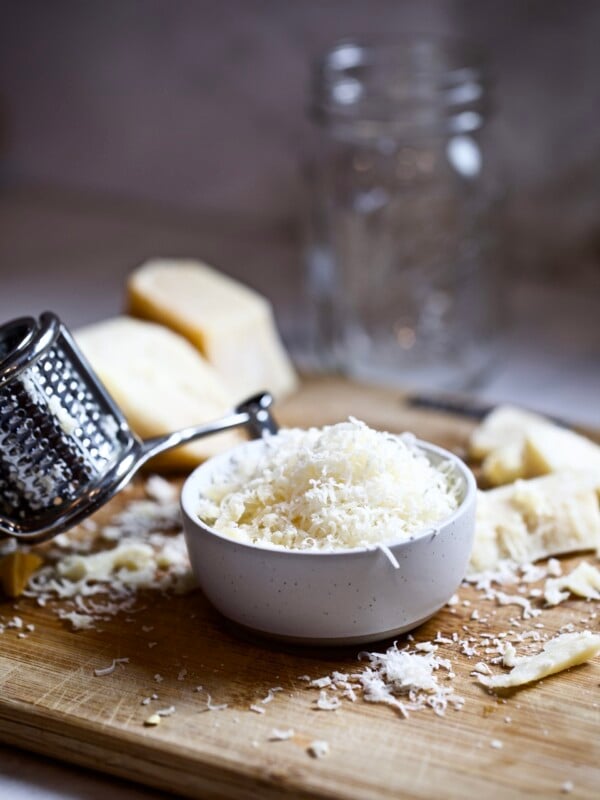
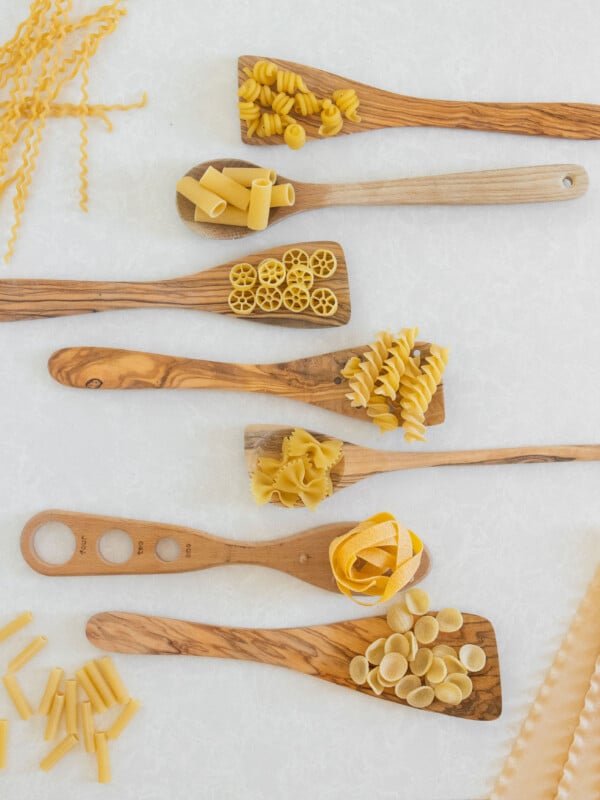
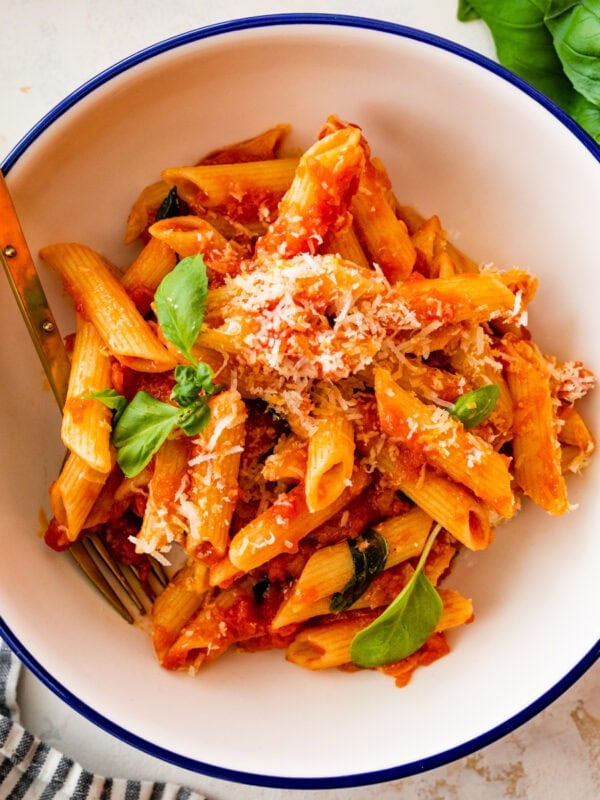
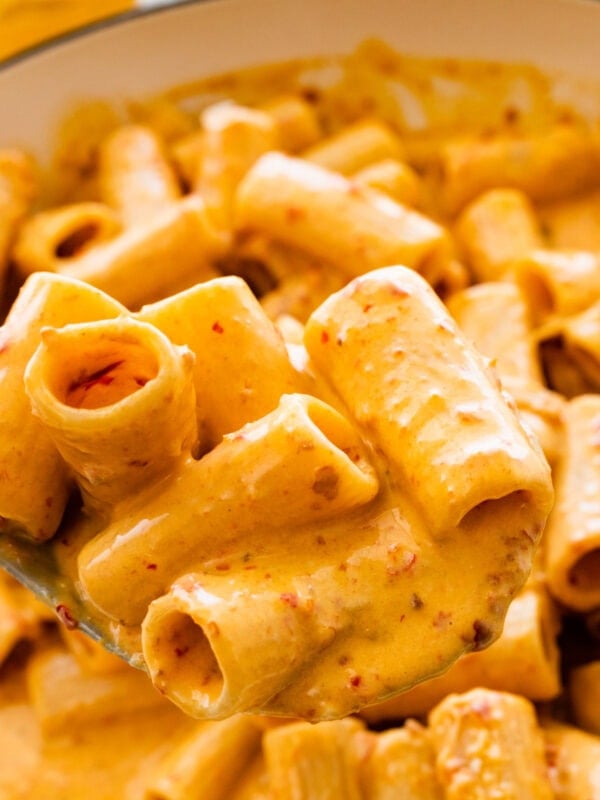
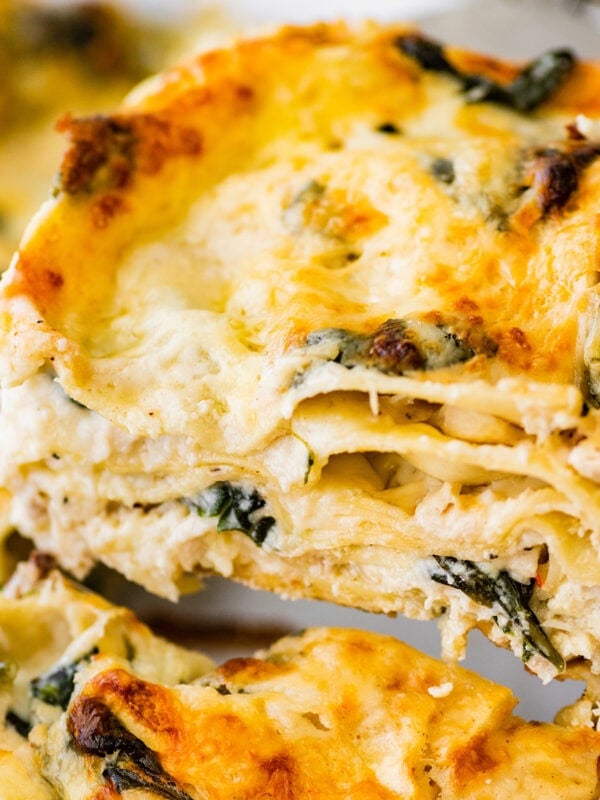
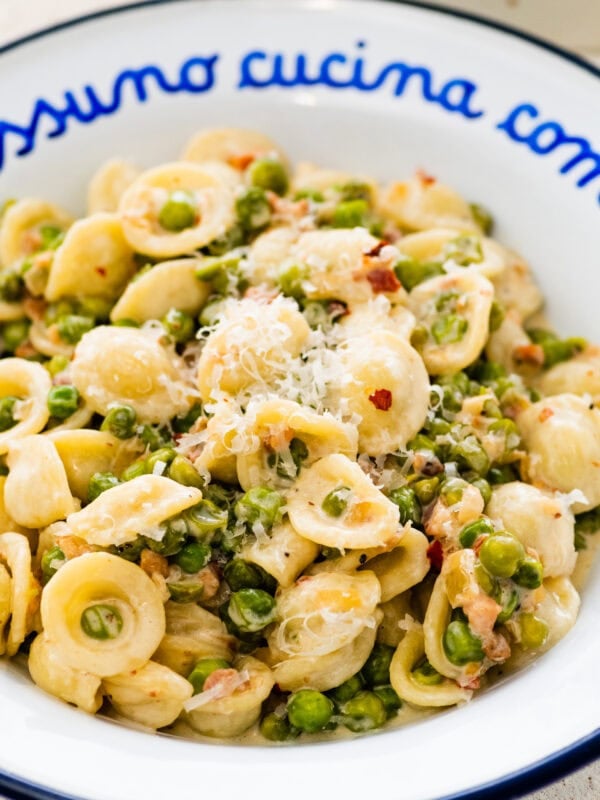




Thanks for this as i love pasta i need to try your gnocchi and ravioli as i love gnocchi and ravioli sooooooooo much BTW cant wait to make your recipes soon for me
Happy you love all the pasta recipes!